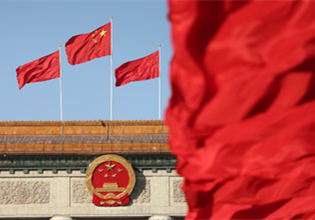Inner Mongolia's cross-border e-commerce surpasses 614m yuan in Q1
In the first quarter of 2025, the cross-border e-commerce sector in North China's Inner Mongolia autonomous region reported over 614 million yuan ($84.11 million) in transactions, marking a 54.13-percent year-on-year increase and signaling a robust start to the year.
The region's five cross-border e-commerce pilot zones pursued differentiated development strategies based on local conditions, turning challenges into growth opportunities.
Leading the statistics is Ordos, which posted 348 million yuan in trade, a staggering 70-fold increase compared to the same period last year. This growth is largely driven by the 9610 direct mail export model, highlighting the strength of small-parcel direct shipments.
Chifeng followed with 93.42 million yuan in transactions, with over 65 percent attributed to the 9710 export model, demonstrating the city's progress in upgrading traditional industries through digital transformation.
Baotou launched the region's first cross-border duty-free store earlier this year by partnering with Tangshan Qibei Supply Chain Management Co. The store has seen a daily footfall of 1,500 and more than 4,500 live-stream viewers. This innovative "offline experience + online traffic" model helped the city achieve 4.9 million yuan in 1210 bonded warehouse transactions, ranking first in the region for this model.
Meanwhile, Manzhouli completed its first 9610 export order, marking a key milestone in the digital upgrading of trade channels with Russia and Mongolia.
Talent development is also playing a crucial role in the sustainable growth of cross-border e-commerce. The region's first specialized training session in 2025 had already shown promising results as Inner Mongolia Yuanli E-Commerce Co completed its first two orders on the Russian Ozon platform, achieving a "zero-to-one" breakthrough.
Additionally, youth innovation is emerging as a powerful force in the sector. The "Beijiang Youth Innovation" incubator—jointly established by the region's communist of youth league committee and department of commerce—supported enterprises that had collectively generated over 230 million yuan in trade and fulfilled more than 2.4 million orders.



 Print
Print Mail
Mail





